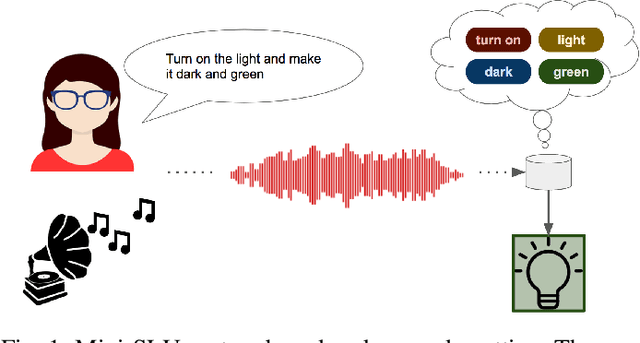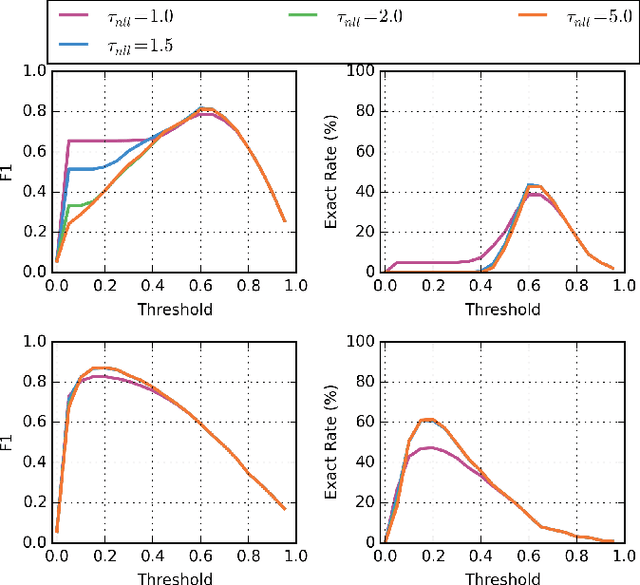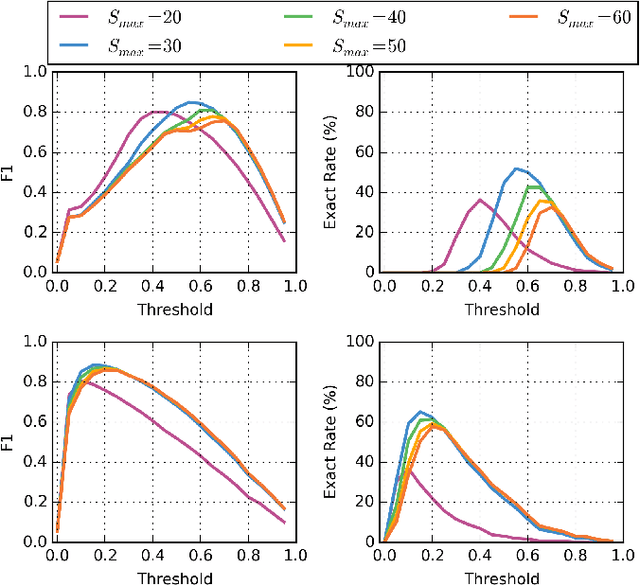Small-Footprint Open-Vocabulary Keyword Spotting with Quantized LSTM Networks
Paper and Code
Feb 25, 2020



We explore a keyword-based spoken language understanding system, in which the intent of the user can directly be derived from the detection of a sequence of keywords in the query. In this paper, we focus on an open-vocabulary keyword spotting method, allowing the user to define their own keywords without having to retrain the whole model. We describe the different design choices leading to a fast and small-footprint system, able to run on tiny devices, for any arbitrary set of user-defined keywords, without training data specific to those keywords. The model, based on a quantized long short-term memory (LSTM) neural network, trained with connectionist temporal classification (CTC), weighs less than 500KB. Our approach takes advantage of some properties of the predictions of CTC-trained networks to calibrate the confidence scores and implement a fast detection algorithm. The proposed system outperforms a standard keyword-filler model approach.
 Add to Chrome
Add to Chrome Add to Firefox
Add to Firefox Add to Edge
Add to Edge